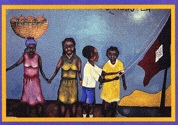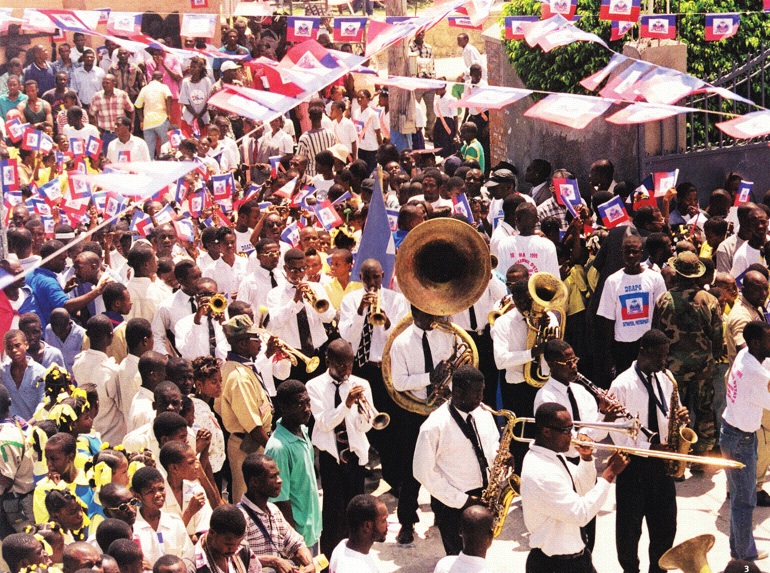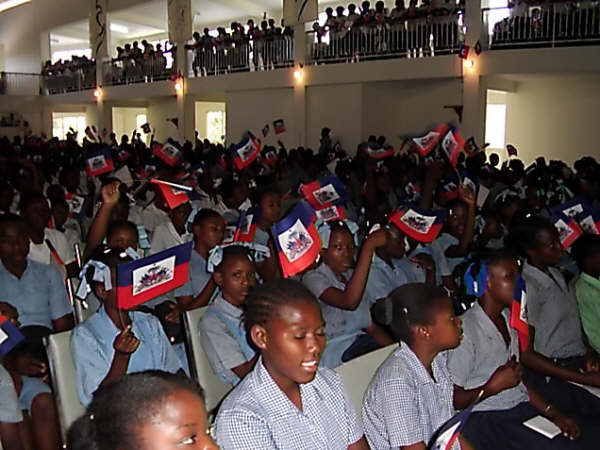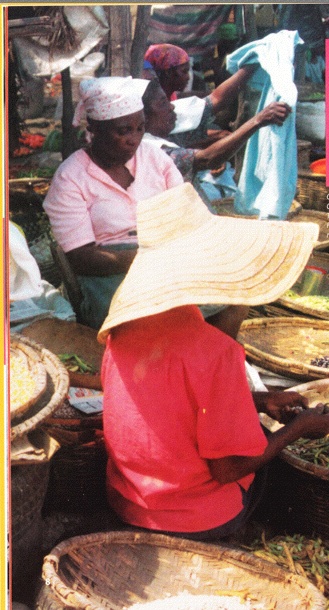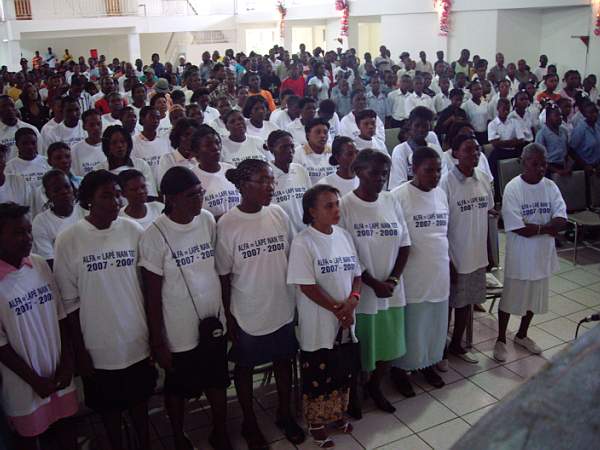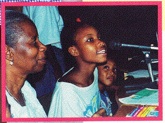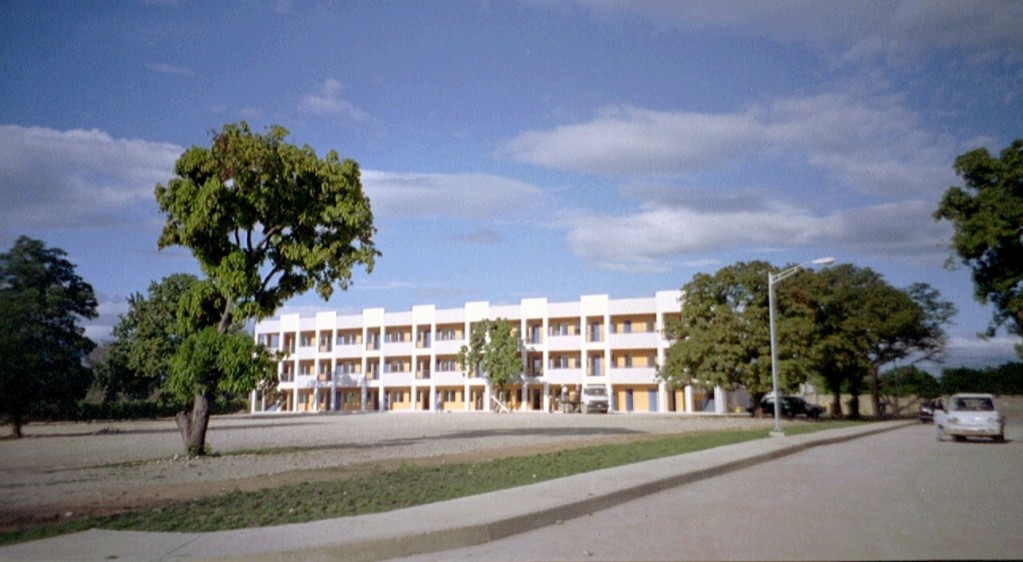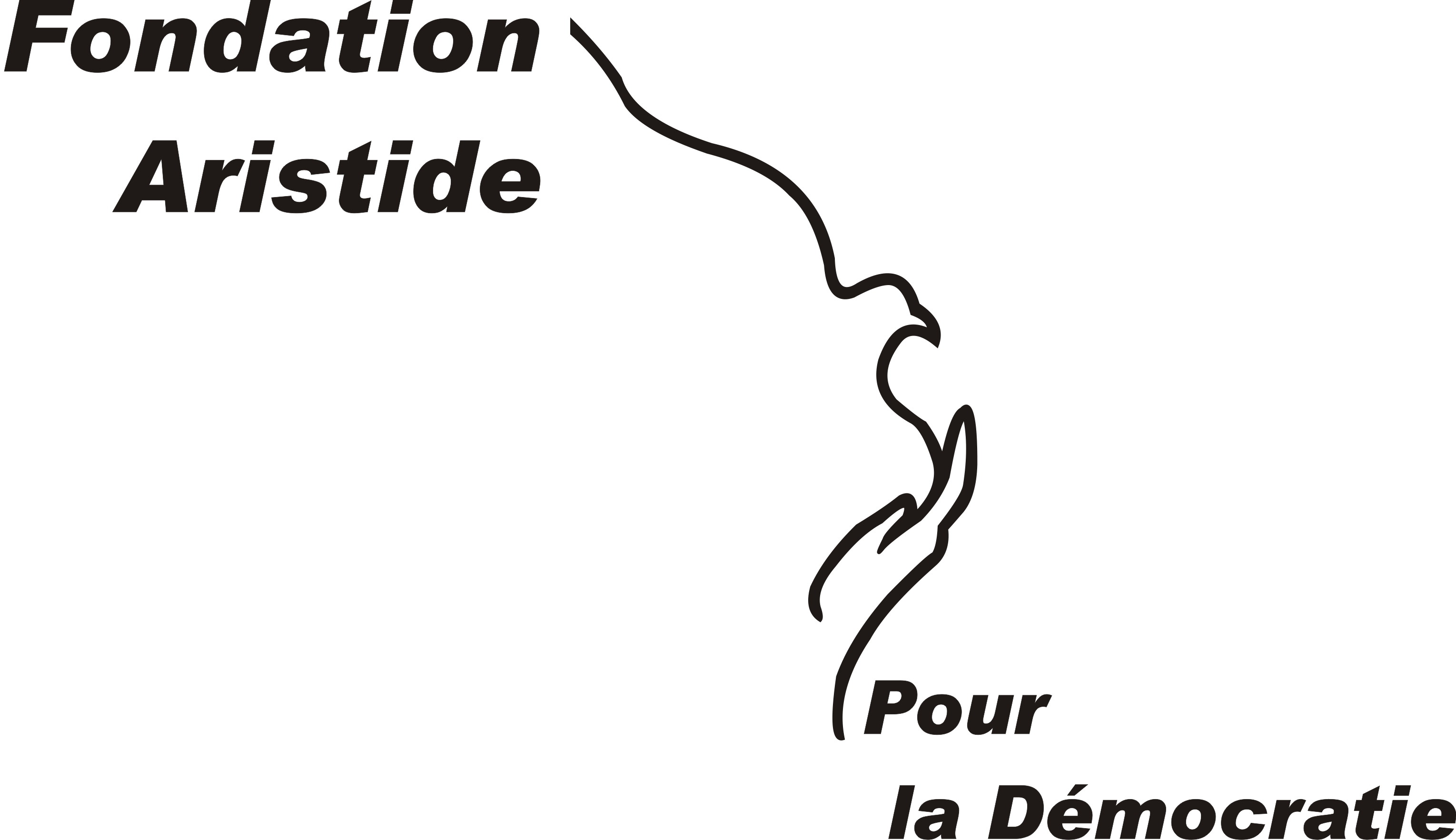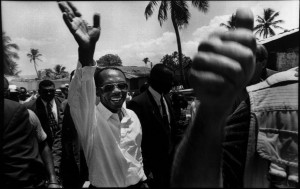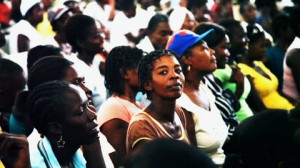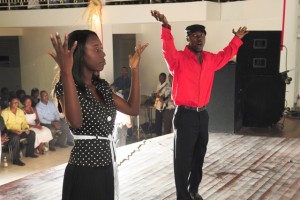Learn More About AFD History
Former President Jean-Bertrand Aristide created the Aristide Foundation for Democracy in 1996 with a simple principle in mind: the promise of democracy can only be fulfilled if all sectors of Haitian society are able to actively participate in the democratic life of the nation.
To bring real change, democracy must include those at the margins of society: street children, market women, landless peasants, restaveks (children living in Haitian households as unpaid domestic laborers), the urban poor. And it must address the issues of primary importance to the majority of Haiti’s nine million citizens: food, jobs, health care, education, justice, and peace.
Haiti’s history since 1996 has only continued to demonstrate that a system based on exclusion cannot meet the needs of its people.
The Aristide Foundation for Democracy remains dedicated to opening up avenues of democratic participation for those who traditionally have had no voices in national affairs. It seeks to echo and amplify the voices of the Haitian people on a national and international level. To create the conditions in which all Haitians can participate in the democratic life of the nation, the Aristide Foundation for Democracy’s had made education its primary mission. To offer the tools needed to participate in the democractic life of the nation the AFD initiated programs ranging from an adult literacy program that reached across the country, to the establishment of Haiti’s first and only educational children’s radio and TV station, to the opening in 2001 of a new Medical School in Tabarre.
In its 14-year history the AFD has also served as a meeting place to debate and discuss the nation’s future, to celebrate Haitian culture and national holidays, and as a laboratory for community-based economic initiatives.
The February 29, 2004 coup d’etat brutally interrupted many of the AFD’s projects. Staff were forced into exile and hiding, facilities pillaged, equipment and furniture stolen and destroyed.
What follows is a summary of the Foundation’s core programs – many of which were slowly being resuscitated before the January 12th earthquake.
A Gathering Place
The AFD’s 3,000 person conference center has been a prominent fixture in the nation’s civic/social life, bringing together people from both urban and rural communities to debate and discuss the issues of the day, celebrate national holidays,and host cultural activities.
Community-based economic initiatives
From 1996-2004 the AFD community-based economic initiatives offered direct and concrete support to the poor.
· Community store. Offered low cost primary necessities – rice, beans, cornmeal, cooking oil flour sugar, etc. – to over 15,000 Foundation members.
· Low-interest credit/support to the informal sector. Small scale, low interest loans were made available to members of the Foundation lending cooperative. Most of the members were women, borrowing in groups of five on a rotating basis. Groups met on a regular basis to address problems and to build a ‘capital of confidence’ among themselves.
· Transportation cooperation. To address the dire need for transport, in March 1997 the Foundation inaugurated a transportation cooperative which operated seven vehicles on previously under-served routes. The cost was half the price of comparable transportation.
· Agricultural support. La Paine de cul de sac, the area surrounding the Foundation, is a semi-urban area on the outskirts of the capital with huge tracts of unused agricultural land. The Foundation made loans and water pumps available to those in this area. Credit was also extended to peasant organizations and repaid in agricultural produce for sale in the community store.
Literacy
In 1996 eighty-five percent of Haiti’s population was illiterate, critically handicapping the vast majority of Haitians from full participation in the nation’s political, social and economic institutions. For 14 years (with a two year interruption immediately following the 2004 coup) the AFD has had a dynamic literacy program. Over 10,000 people have graduated from AFD literacy programs in classerooms at the Foundation in Tabarre, as well as in Martissant, Carrefour, Gressier, and Leogane.
Since 1996 AFD has trained 1,230 high school and university students to serve as animators (literacy teachers). We have consistently incorporated a literacy component into other programs, and most critically, the Foundation has provided training and literacy materials to communities across the country to develop and maintain their own literacy programs.
For several years the AFD published its own Kreyol language newspaper, Diyite, which reported on globalization, Haitian history, current world events, and served as a resource for literacy training.
Radyo and TeleTimoun
Radyo Timoun and TeleTimoun (Children’s radio and television) – the country’s only radio and television station run by and for children – prime mission was on-air, distance learning classes for working children; Haiti’s restavek children. Children were given the microphone, and a voice.
The stations broadcast a mix of news (with children involved in the preparation and presentation), educational and issues-based commentaries, dialogues, interviews, music, and call-in programs.
The Foundation, in collaboration with Lafanmi Selavi[i], offered classes and recreational activities for restevek children, and directly supported schools for this silent army of working children in several poor neighbourhoods in Port-au-Prince.
Lafanmi Selavi is the center for street children established by former President Aristide in 1988 while he was still a priest. In 1991 on the eve of his first inauguration as the country’s president, Selavi was burned to the ground by anti-democratic forces: 4 children were killed. During the course of its 22-year history, Selavi has been a refuge for street children. In 1989 the seeds of a popular university were planted; courses in sociology, psychology, language and economics were offered to hundreds of young people. Later, the house became the site of a Montessori preschool program, a primary school for boys and then for girls, a medical clinic offered services for children, and the house on rue Camille Leon become a hub for various other activities centered on ameliorating life for Haiti’s poor children and empowering this marginalized faction of Haitian society.
AFD Medical School
(Université de la Fondation Aristide – UniFA)
In 2001 the Aristide Foundation for Democracy broke ground on the construction of Haiti’s largest medical school. Read more on the Medical School here.
